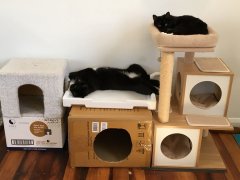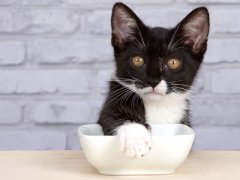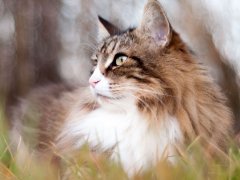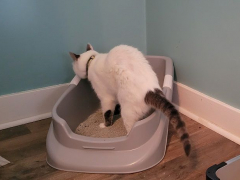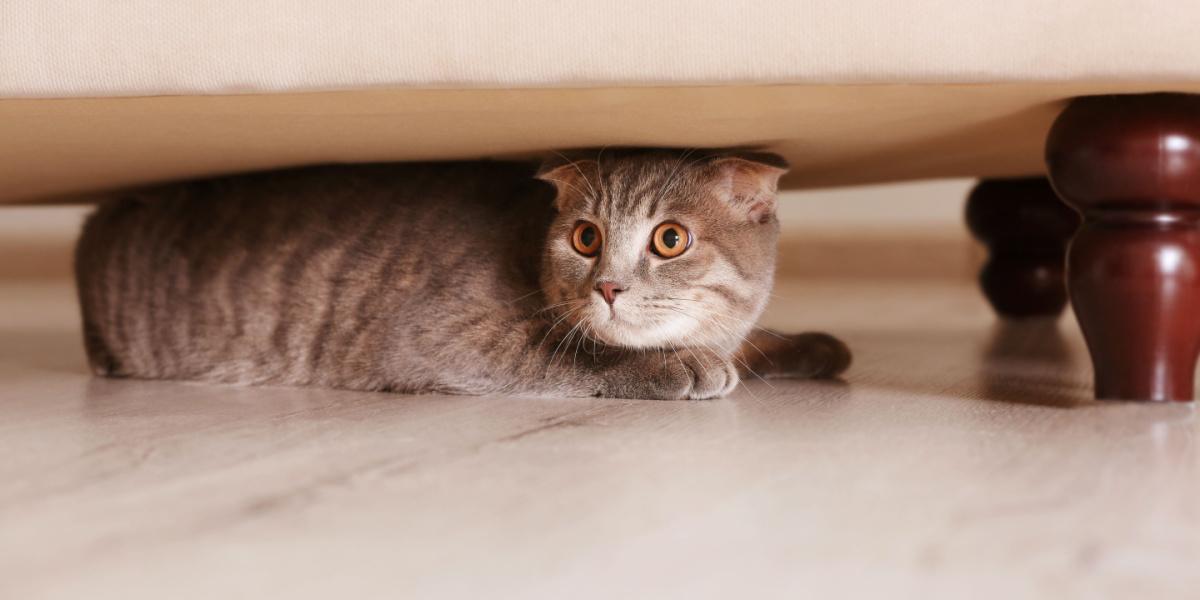
Cats experience some emotions just as humans do. It’s usually fairly easy to recognize when our cats are happy, scared, or angry. But what about more complex emotions such as embarrassment? A cat might look around with a strange facial expression just after they have slipped or fallen, and we could easily assume it’s because they are checking to see who saw them.
Embarrassment is a complex emotion that requires self-awareness and awareness of others. It is unclear whether cats are capable of experiencing complex emotions such as embarrassment. Cats sometimes demonstrate behaviors that look like embarrassment such as hiding away, avoiding eye contact, or giving you a strange expression, but it is more likely that your cat is feeling fearful, or just responding to your own emotions.Key Takeaways
But is your cat really feeling embarrassed or are we just assuming they are because that’s how we would feel if it were us? Read on to learn more about whether cats are capable of feeling embarrassed.
What Is Embarrassment?
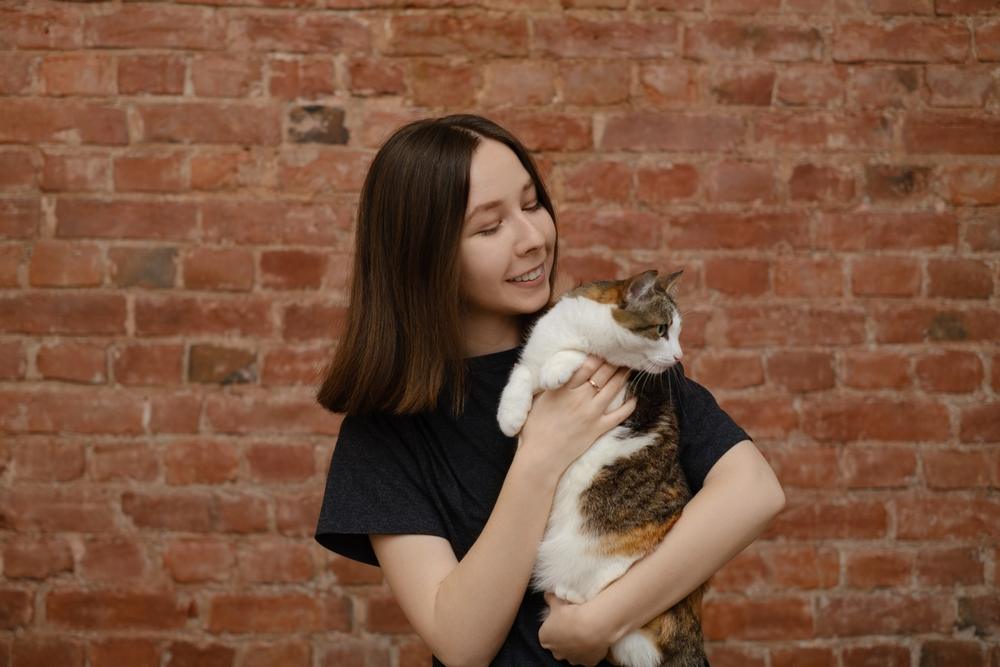
Feeling embarrassment requires self-awareness, something that scientists don’t yet know for certain that cats have.
We’ve all experienced embarrassment at some point in our lives. It’s that unpleasant feeling that you get when you feel as though you’ve done something wrong or silly and other people are judging you. It can cause your heart rate to increase, your palms to sweat, and your face to blush.
It might be an uncomfortable emotion, but experiencing embarrassment is thought to serve an important social function. It helps us to learn that we have done something wrong and that we do not want to repeat it again in the future. Feeling embarrassed requires self-awareness as well as an awareness of what others around you are thinking. It is unclear whether cats are capable of this self-awareness.
Also Read: Do Cats Feel Sadness?
Cat Emotions
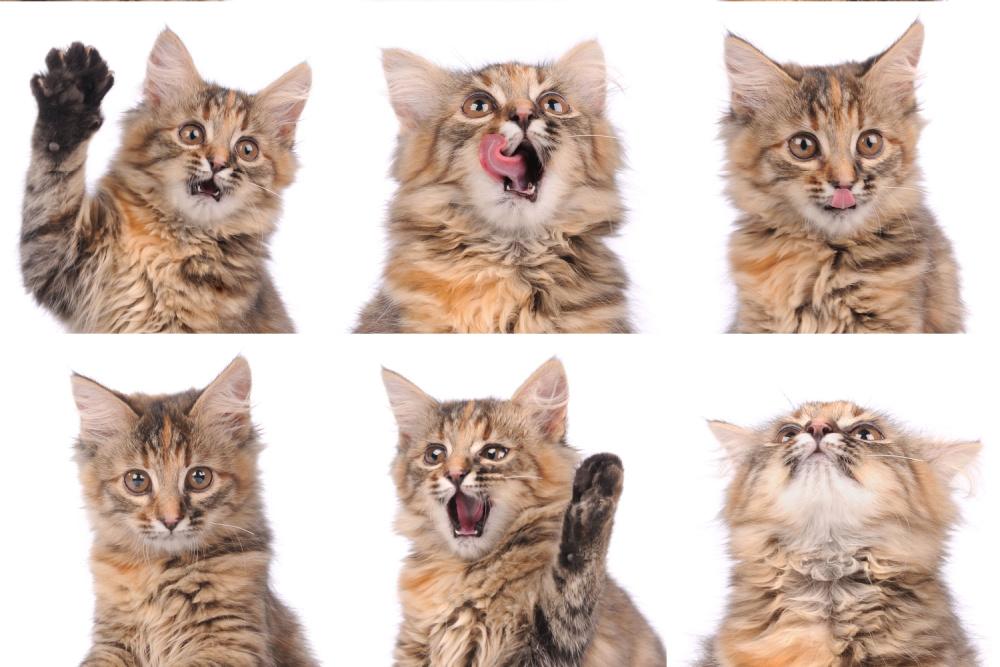
Although cats are good at communicating through body language, we don’t fully understand how they experience complex emotions.
Cats might experience a range of emotions such as fear, happiness, and frustration. Although cats cannot talk, they have many ways in which they can communicate their feelings, mostly using their body language.
A happy cat will have a relaxed body posture and might be purring contentedly, while a fearful cat is likely to stand with an arched back and fur stood on end while hissing at the threat. These basic emotions are easily interpreted by us as cat owners, but more complex emotions such as embarrassment are a little trickier to determine.
It is unclear as to whether cats experience more complex emotions such as embarrassment in the same way that humans do. Cats are well known for being independent and sometimes aloof, but they are also sensitive to social cues and might react to situations in ways that suggest they are aware of their own behavior.
For example, a cat that knocks over an ornament might slink away or avoid eye contact with its owner, which might be interpreted as a sign of embarrassment. But is this what they are truly feeling?
It is also possible that the cat is simply reacting to the owner’s body language or tone of voice, or even anticipating their owner’s reaction based on a previous similar situation, and not actually feeling embarrassment at all.
Also Read: My Cat Is Hiding And Acting Weird: When to Worry
Which Cat Behaviors Resemble Embarrassment?
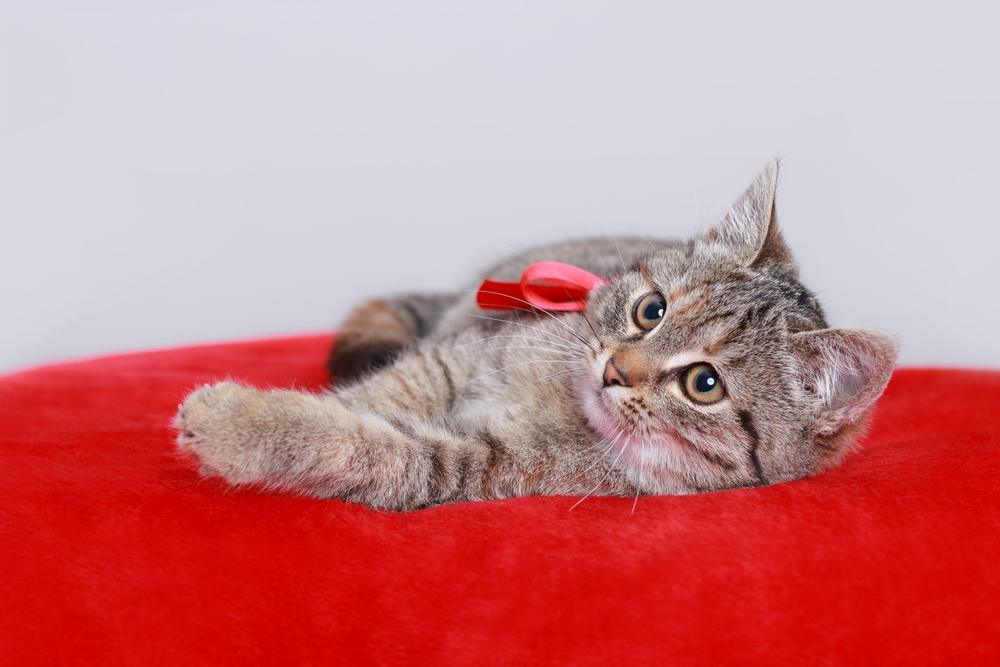
In many cases, what humans interpret as embarrassment has a different explanation.
Let’s take a look at some common situations in which we might believe our cat to be embarrassed and what other explanations might explain the behavior:
Your Cat Slips Or Falls And Looks Around Their Environment
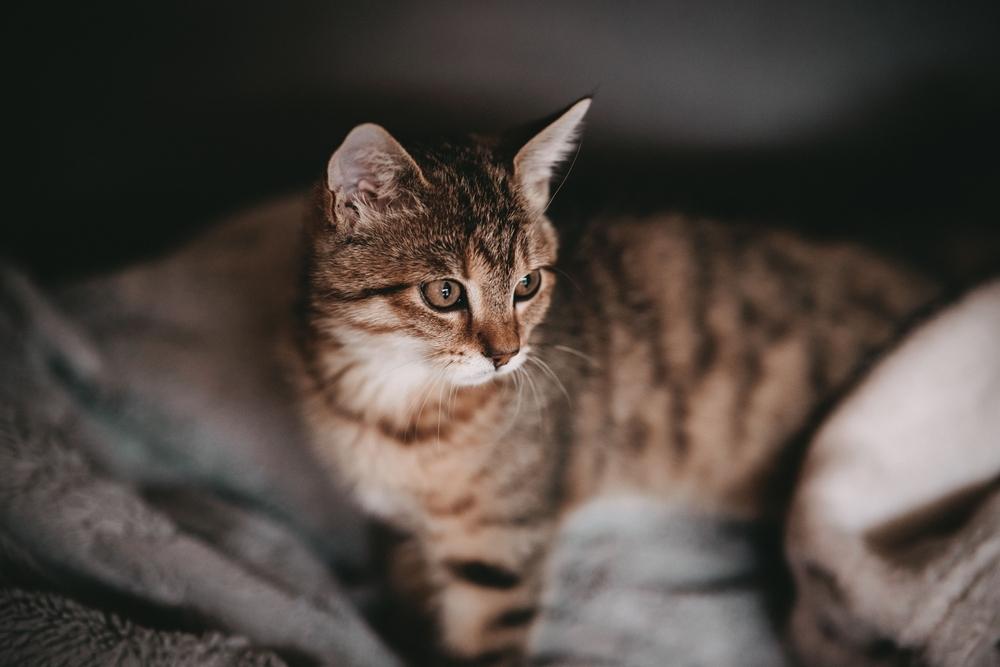
Rather than feeling embarrassed about looking silly, cats are more concerned with how their behavior makes them vulnerable to threats.
If this were to happen to you or me, we would probably be looking around to check who had seen us fall. We would be embarrassed to have made a silly blunder in front of someone else. However, your cat is more likely looking around in an instinctive move to check whether the noise of falling has attracted any predators.
Also Read: Why Is My Cat Staring At Me? Top 5 Reasons Explained
Your Cat Knocks Something Over And Slinks Away
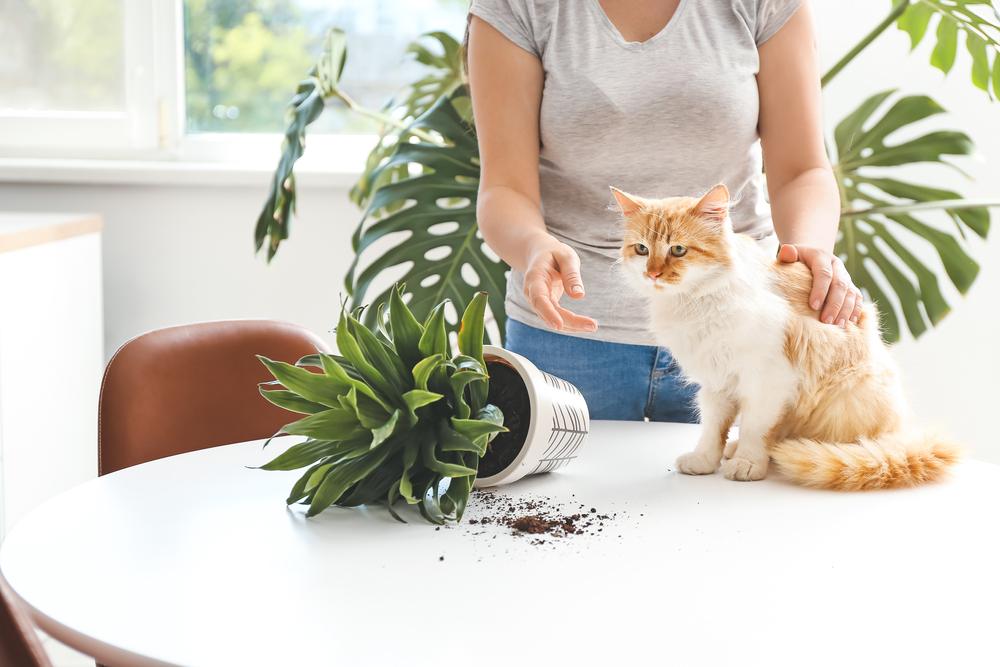
Cats are great at reading human body language and moods, especially when you are upset with them.
Although you or I might be embarrassed at having been so clumsy, it is more likely that your cat is simply aware they have done something wrong and wishes to avoid your reaction. Cats are very good at reading our body language and might correctly interpret that we are annoyed with them. Your cat might also be remembering your reaction from a previous similar episode and anticipating you telling them off.
Also Read: 8 Reasons You Should Never Punish Your Cat
You Laugh At Your Cat And They Look At You Strangely
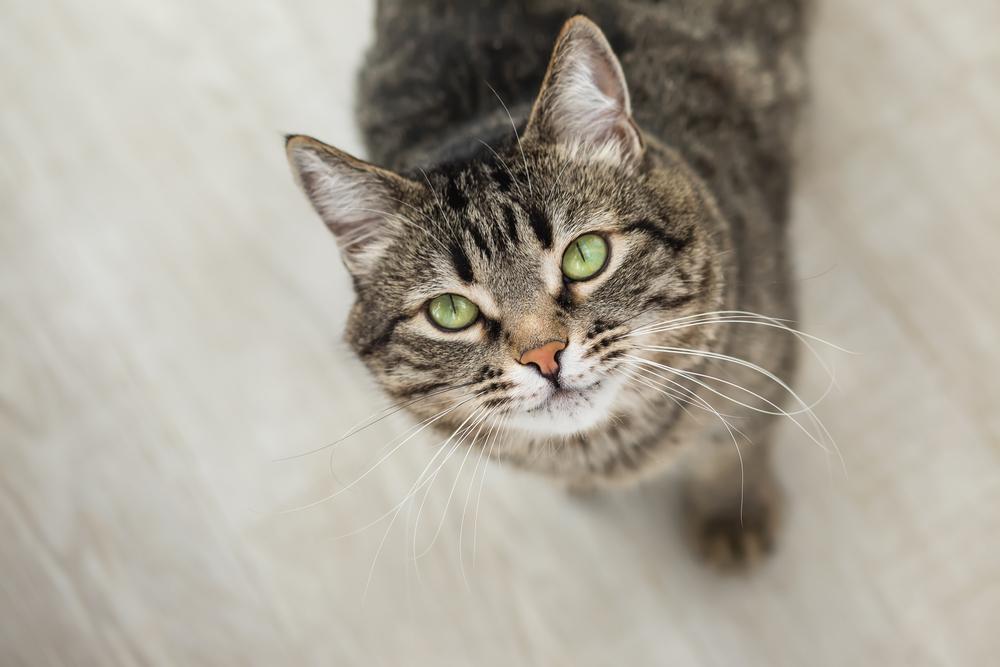
Cats don’t laugh, so hearing laughter is likely surprising and confusing to them.
No one likes to be laughed at and a human would be embarrassed by someone laughing at them. With cats, however, it is far more likely that they are confused by your reaction as they do not understand laughter. Your cat is more likely to be looking at you in shock (particularly if your laugh is loud) or confusion as they do not understand your reaction.
Also Read: Do Cats Have A Sense Of Humor?
Your Cat Stops Playing And Grooms Themself If You Enter A Room
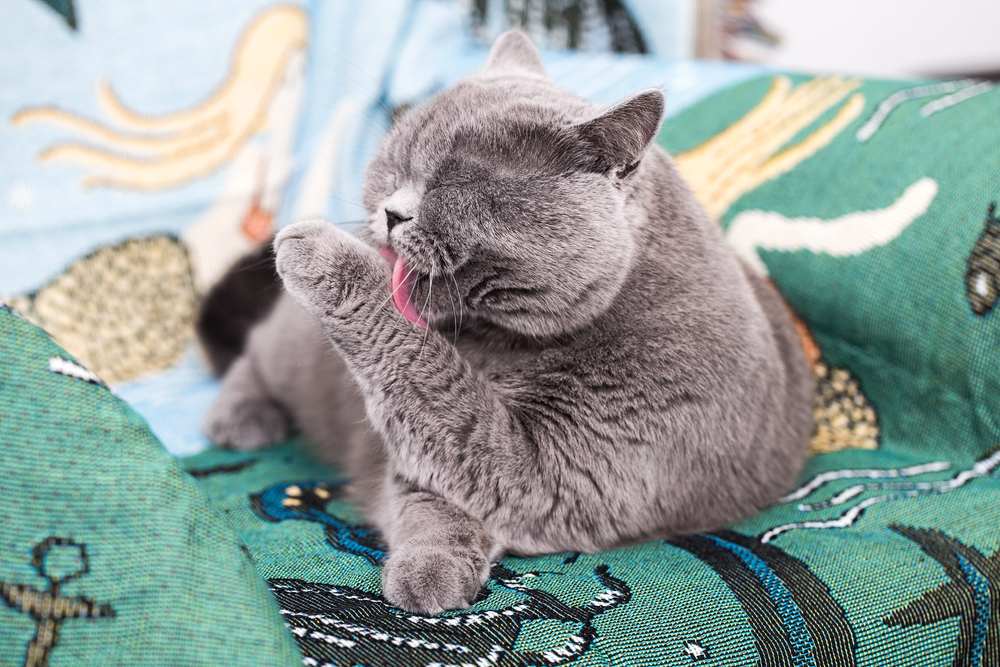
If your cat stops what they were doing when you come into the room, the most likely explanation is they were distracted by the sounds you made.
We could easily assume that our cat is embarrassed to have been caught behaving playfully, and is grooming themself to pretend that they weren’t playing in the first place. It’s more likely that the sound you make when you entered the room caused your cat to instinctively be on alert and look for predators or threats that could be nearby.
Also Read: Repetitive, Excessive And Compulsive Grooming In Cats
Your Cat Vomits Then Looks Up With An Odd Look On Their Face
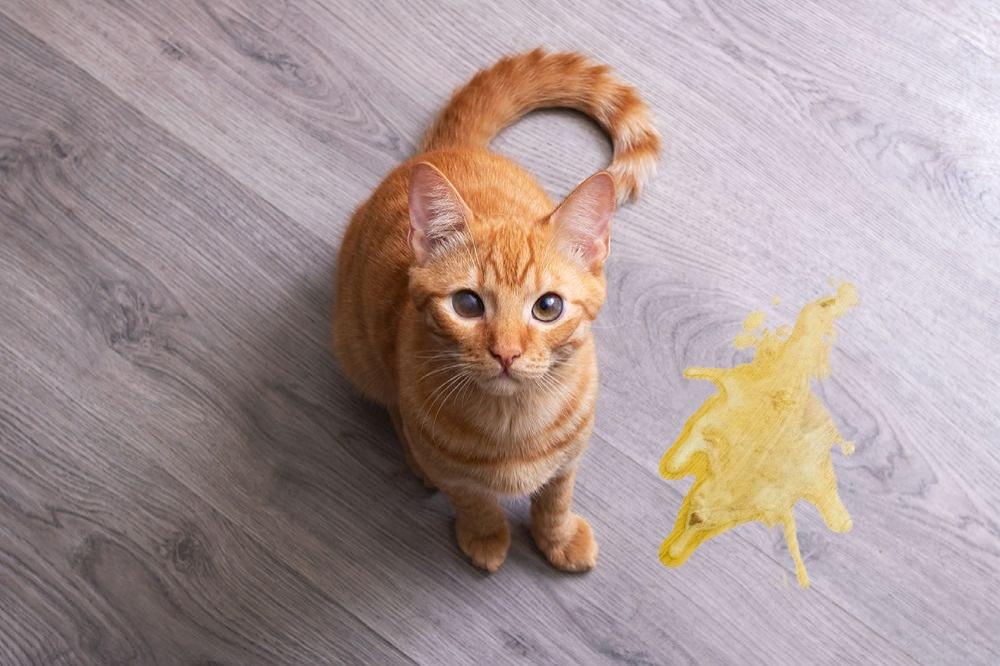
If your cat looks at you strangely after being sick, they might be hoping for some comfort or relief from how they are feeling.
Although we could interpret this as a look of embarrassment, it’s also possible that your cat is feeling strange and unwell and is looking to you for reassurance.
Also Read: Cat Vomiting: Causes, Symptoms, & Treatment
Anthropomorphism
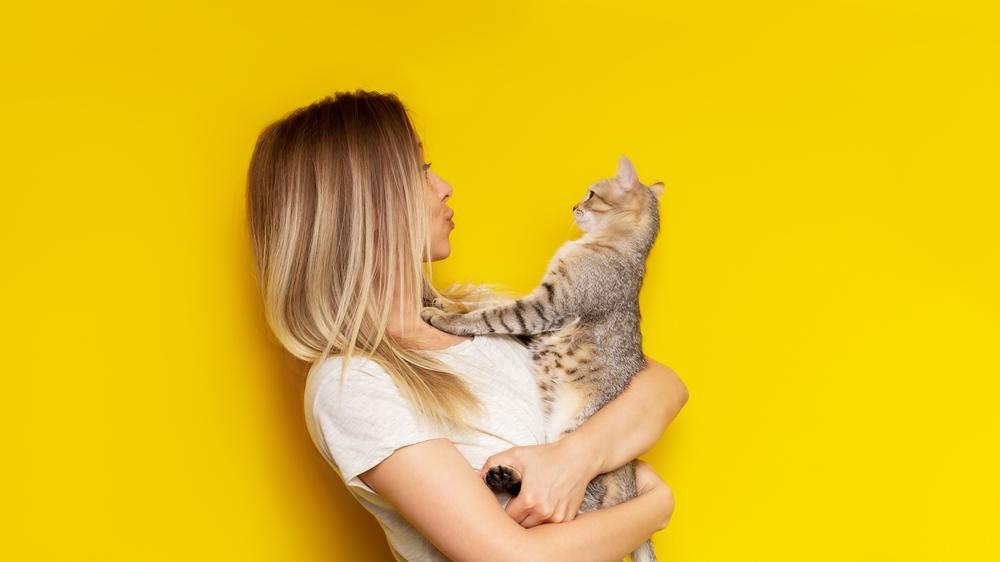
Although cats might not experience emotions the same way people do, there is usually no harm in thinking they do.
Assuming that our cats feel embarrassment is based on how we might feel in that same situation. Attributing human emotions to animals in this way is called anthropomorphism. We all do it and it can help to strengthen the bond we feel with our pets. It allows us to believe that our pets understand us and that we understand them on a deeper level.
It is impossible to know for certain just how well our pets can experience complex emotions but there is usually no harm in believing that they experience some of these emotions, even if they don’t. Anthropomorphism usually has a very positive effect on the human-pet bond and it can help us to feel better connected to our cats and other pets.
Also Read: 10 Proven Ways To Show Your Cat You Love Her
Embarrassment In Cats: Final Thoughts
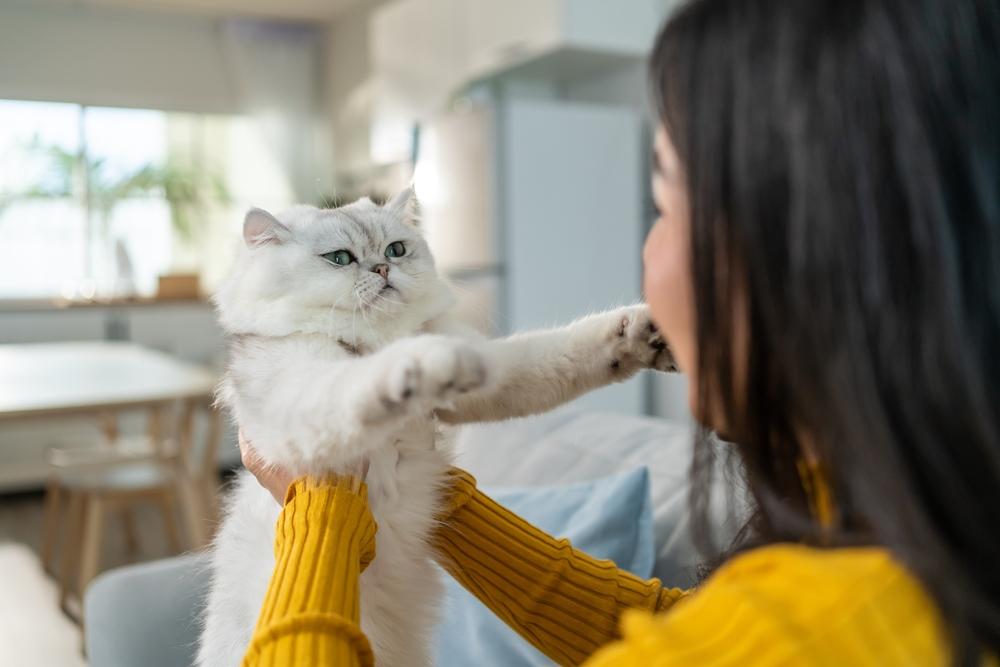
How cats experience emotions is still a mystery.
It is hard to know whether cats have the capability of experiencing complex emotions such as embarrassment. Many cats exhibit behaviors that may resemble embarrassment, such as hiding or avoiding eye contact, but these actions could also have other explanations, such as fear or simply trying to avoid conflict.
Ultimately, we don’t know for sure what our cats are feeling. Are they actually feeling embarrassed or are they just responding to our body language and own emotions? Either way, it doesn’t hurt to believe that our cats do feel embarrassed sometimes, and it can sometimes even make a situation funny as opposed to annoying.
Also Read: My Cat Doesn’t Like Me: 5 Reasons Why & How To Fix It
Frequently Asked Questions
How do cats act when they are embarrassed?
We don’t know for sure whether or not cats are capable of feeling embarrassment. Some people assume their cats are embarrassed when they hide away after a mishap or avoid eye contact, but these behaviors can also be explained in other ways.
Are cats embarrassed when they fall?
Cats can sometimes appear embarrassed after they fall because they immediately look around to check their surroundings. It is actually more likely that they are checking to see whether or not the noise of them falling has attracted any unwanted attention.
Do pets feel embarrassment?
No one knows for sure whether or not pets are capable of experiencing complex emotions such as embarrassment. Pets can often exhibit behaviors that are mistaken for embarrassment when in fact they might actually just be fearful or responding to our own emotions.
Do cats get embarrassed after throwing up?
Cats can sometimes look up at you with a strange expression after throwing up, or they might try and hide away. Although this might be interpreted by an owner as embarrassment, it is more likely that your cat is feeling strange and unwell and is looking to you for reassurance, or looking for somewhere quiet to rest until they feel better.
-
Heath S. (2018). Understanding feline emotions and their role in problem behaviors. Journal of Feline Medicine and Surgery. 2018;20(5):437-444.
-
Vitale KR, Behnke AC, Udell MAR. (2019). Attachment bonds between domestic cats and humans. Current Biology. 2019 Sep 23;29(18):R864-R865.

